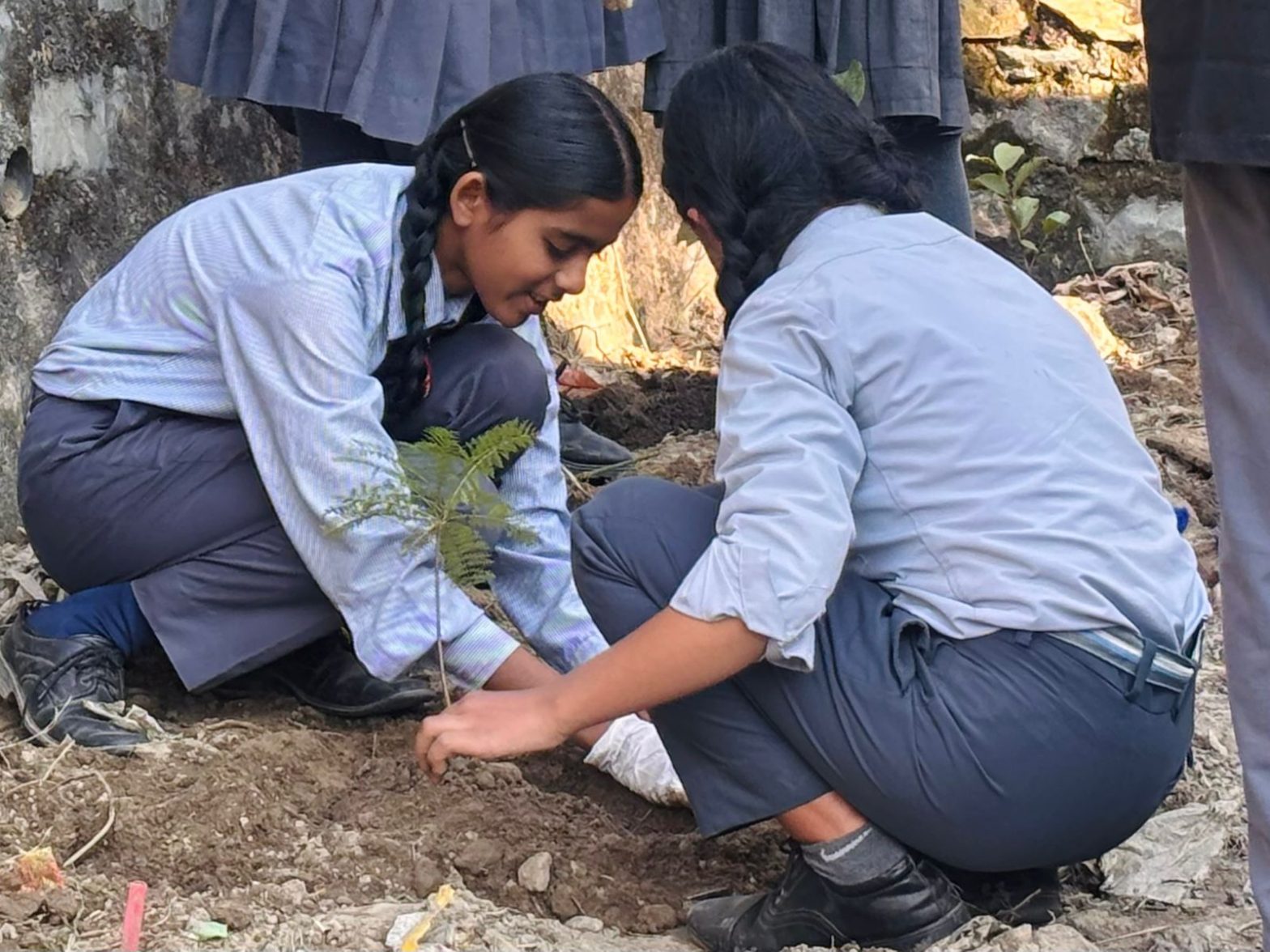Kathmandu: UNICEF’s Climate Cinema: Children on the Frontlines of Climate Action campaign providing children and young people a platform to share their experiences of climate change through storytelling and film, concluded today with a powerful call to action: children must be at the center of climate solutions.
Over the last two weeks, the Climate Cinema initiative has travelled across Nepal — from Dhangadhi Sub-Metropolitan City in Sudurpaschim Province, Panchapuri Municipality in Karnali Province, Siddharthanagar Municipality in Lumbini Province and Parsa Rural Municipality in Madhesh Province — culminating in the capital with a celebration of the courage, creativity and leadership of young climate champions. Through film screenings, interactive discussions, and local child-led climate actions, the campaign amplified the lived experiences of children growing up amid floods, droughts and landslides, while showcasing their determination to protect their communities and inspire change.
“My school was closed for nearly a week last year because it was flooded due to heavy rainfall, an incident which had never happened before,” said Jayanti Bam, 15, one of the children featured in the Climate Cinema campaign. “I left my village in Kalikot to come to the capital city in hopes of better education, but climate change continued to impact my right to learn.”
Jayanti, who is also the president of the eco club at Shree Gamvir Samudra Setu Secondary School where the closing event was hosted, added, “Children are not just victims of climate change — we have ideas and solutions. Children must be at the center of climate solutions. We are ready to be part of the change, and we want decision-makers to listen to us and work with us to protect our future.”
The Honorable Minister for Agriculture and Livestock Development Dr. Madan Prasad Pariyar, who will lead Nepal’s delegation to COP30, joined the closing event and received one special report capturing Jayanti and other children and youth’s voices and recommendations from across the country. Likewise, the Honorable Minister also received the National Youth Statement, developed by more than 500 children and youth through the provincial and national-level Local Conference of Youth (LCOY) Nepal 2025, recently held under the leadership of Powershift Nepal, Nepalese Youth for Climate Action (NYCA) and other youth-led organizations, in collaboration with UNICEF, UNDP and other partners.
He reaffirmed the Government’s commitment to integrating child-centered climate action across all sectors and pledged to take these voices to COP30 to ensure they inform global climate dialogue.
“The Government of Nepal is committed to integrating climate action into every sector — from education and health to water, sanitation, and social protection. Our Nationally Determined Contribution (NDC) 3.0 is among the world’s most child- and youth-friendly climate plans. We are determined to translate that plan into action, in partnership with our development partners and with our children and youth at the center,” said Honorable Minister Dr. Pariyar.
“As we prepare for COP30, Nepal stands ready to demonstrate global leadership — showing how we can collaborate with our young people, using their creativity, energy and passion – to drive transformative climate action. To the young climate champions: you are the true heroes of today’s event. The Government of Nepal stands with you — to build a future that is safe, green and full of promise for every child,” he added.
Also speaking at the event, Ms Alice Akunga, UNICEF Representative in Nepal, highlighted that the Climate Cinema campaign brought to life the stories and resilience of children across Nepal’s provinces — from classrooms disrupted by floods to families rebuilding after landslides.
“Climate change is not only an environmental issue; it is a child rights crisis. It threatens children’s rights to survive, grow, and thrive — impacting their health, education, wellbeing, and future opportunities” said Ms Akunga. “But while children are among the most affected, they are also among the most powerful agents of change.”
She also reaffirmed UNICEF’s commitment to continue working with the Government of Nepal to promote climate education and strengthen climate-resilient social services, ensuring that schools, health centers, and water systems can withstand the growing impacts of climate change.
The Climate Cinema campaign, organized with the support of federal, provincial and local governments, schools, and youth networks, reflects a growing movement to ensure that children’s stories and solutions inform national and global climate policies — starting from classrooms and communities, all the way to COP30. By visiting communities across Nepal’s provinces, the initiative highlights both the challenges children face and their innovative solutions for adaptation and resilience.
